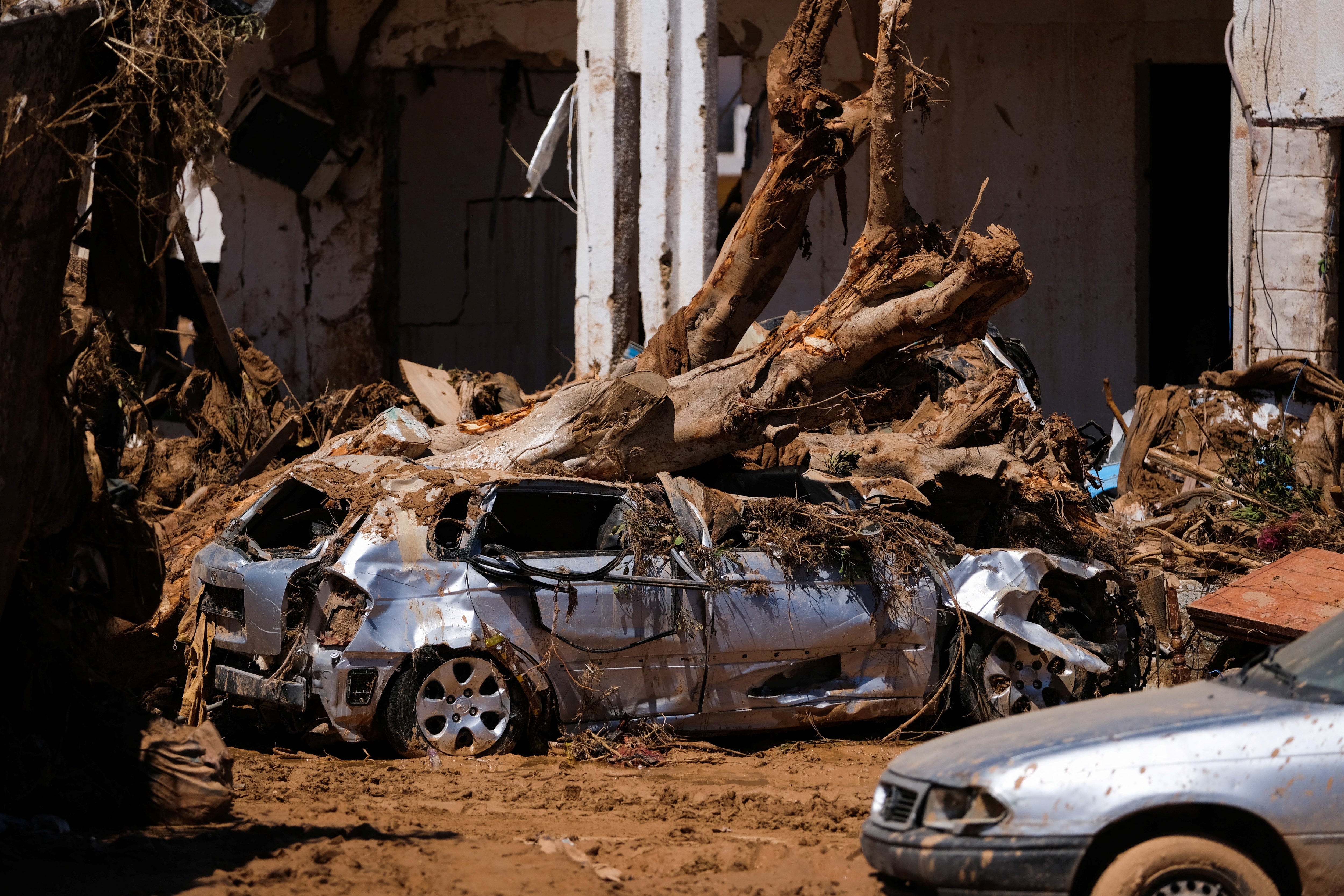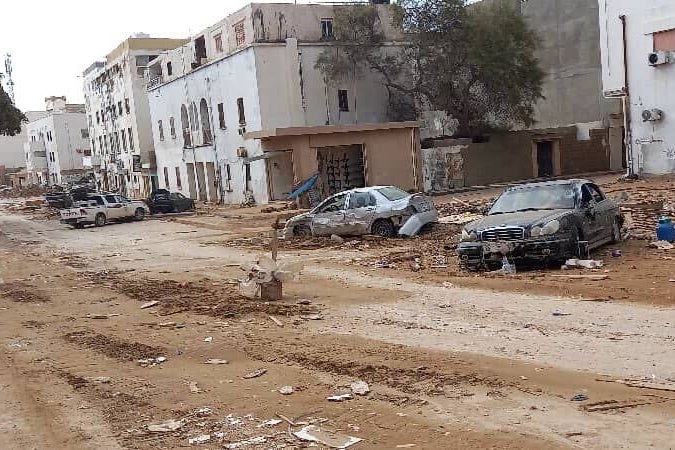‘Washed out to sea’: Heartbreak of man who lost 32 family members in Libya floods as death toll could hit 20,000
‘I see the ruin, the destruction, the misery and the smell of death. Derna is now a dead city’

Your support helps us to tell the story
From reproductive rights to climate change to Big Tech, The Independent is on the ground when the story is developing. Whether it's investigating the financials of Elon Musk's pro-Trump PAC or producing our latest documentary, 'The A Word', which shines a light on the American women fighting for reproductive rights, we know how important it is to parse out the facts from the messaging.
At such a critical moment in US history, we need reporters on the ground. Your donation allows us to keep sending journalists to speak to both sides of the story.
The Independent is trusted by Americans across the entire political spectrum. And unlike many other quality news outlets, we choose not to lock Americans out of our reporting and analysis with paywalls. We believe quality journalism should be available to everyone, paid for by those who can afford it.
Your support makes all the difference.Family members of those swept away by catastrophic floods in Libya fear they will never find the bodies of their loved ones amid warnings that the final death toll could reach 20,000.
Hamdi Burwag, who lost 32 relatives in the storm, told The Independent that local officials warned the death toll could easily reach that figure, as nearly 7,000 had been confirmed killed and at least 10,000 people have been reported missing.
A large part of Mr Burwag’s family was in the Mediterranean city of Derna when it was obliterated by a torrent of water unleashed by powerful Storm Daniel that rushed down dry river beds breaking several nearby dams in the process.
The 60-year-old said the entire family of his aunt had been killed instantly, including multiple children, as their home was “washed kilometres out to sea”. He said there were concerns that rotting bodies trapped under the destroyed buildings and mud could cause an epidemic of disease as the days go on.
The international community has scrambled to offer support to the war-ravaged country: the UK announced an initial million-pound aid package on Wednesday afternoon.
“My family members were sleeping at 3am when the water took their entire building out to sea. A quarter of Derna has been washed away,” Mr Burwag said as he was en route to the worst hit areas with a convoy of supplies.

“I spoke to my cousins who survived. They said there are bodies trapped under the rubble and corpses have been washed to sea, there is a huge effort to try to retrieve these souls but it won’t be possible to get everyone.”
“Those in charge of this country do not have emergency procedures in place for a catastrophic event of this scale,” he added.
Mr Burwag sent The Independent photos his son took from the city centre. In them, the force of the water had swept up cars and wedged them between trees and buildings. The waters had also flattened entire warehouses and gouged huge holes into buildings.
He said there were concerns that the next threat on the horizon was disease.

“We are trying to do what we can. I’m working with the Boy Scouts to bring medicines, foodstuffs, milk, anything we can get our hands on to the city,” Mr Burwag added.
A member of the Libyan security forces deployed to Derna, who spoke on the condition of anonymity as he is not permitted to speak to the media, said the devastation was so huge “it wasn’t possible to even put into words”.
Akram, who is a member of General Haftar’s Libyan National Army, lost two family members and several friends in the flooding and was in a suburb of Derna manning the evacuation of citizens.
“I see the ruin, the destruction, the misery and the smell of death. Derna is now a dead city,” Akram said. “At least four districts have just been destroyed.”
“We are distributing aid to people who have evacuated. They are living in makeshift shelters, schools, people’s homes, social institutions everywhere,” he said.
The UN said that hundreds of thousands of people, including many children, have been impacted by the disaster which hit the coastal towns of Bayda, Marj and Derna.

At least 20,000 people who are now displaced are being hosted in schools, while around 7,000 remain stranded in remote areas according to the UN’s child agency Unicef.
The international community, meanwhile, has scrambled to answer calls for help from Libya, a country that has been in the grips of conflict and warring armed factions since the 2011 ousting and death of longtime dictator Muammar Gaddafi.
Nations from the United States to Italy and the United Arab Emirates have sent planeloads of food, medical supplies, and shelter tents.
The United Kingdom announced a million-pound aid package on Wednesday, which the Foreign Office said was an “initial package” to provide assistance.
The foreign secretary, James Cleverly, said: “The UK is committed to supporting Libya following these devastating floods.
“The funding announced today will provide life-saving assistance to those most affected by the floods, including women and children and those who have been displaced from their homes.”
However, rescue operations are complicated by deep political fractures in the country of seven million people that remains divided between two warring administrations. An internationally recognised Government of National Unity (GNU) is based in Tripoli, in the west, while a parallel administration operates in the east, including Derna.
Join our commenting forum
Join thought-provoking conversations, follow other Independent readers and see their replies
Comments